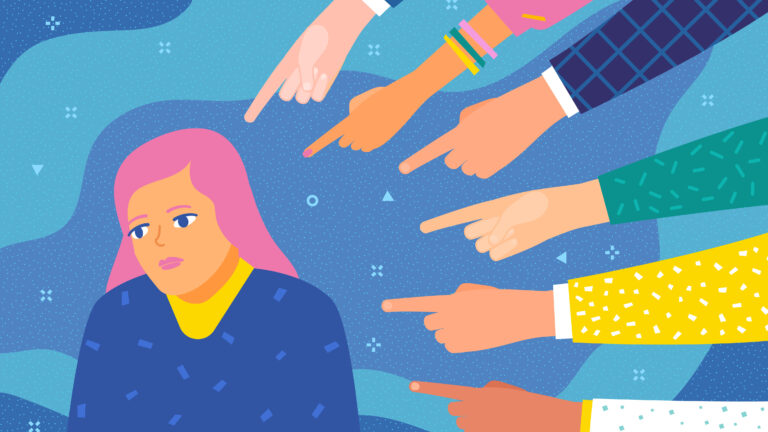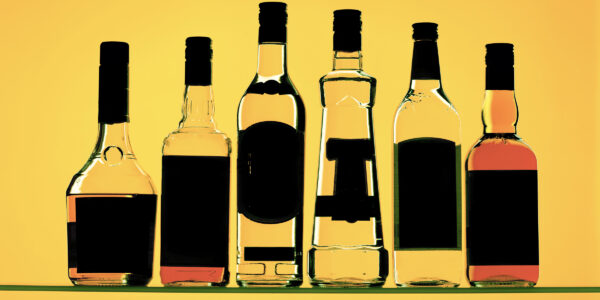LISTEN TO THIS ARTICLE:
What is self-stigma?
When you hear the term “stigma,” most people imagine a select group of people who are judged and cast aside by the masses. It may be because of what they look like, who they love, or how they worship. Regardless of the reason, the process of exclusion and shunning is basically the same. This is actually just one type of stigma called “public stigma.” However, with “self-stigma,” the shame comes from within. People internalize judgment they get from others and impose it on themselves.
Impact on recovery
Levels of public and self-stigma play a big role in the how people who use drugs access treatment and how successful their recovery is. People who use drugs who have higher levels of self-stigma are more likely to need hospitalization as part of getting sober. They also spend more time in in-patient treatment for Substance Use Disorders than others. Overall, they feel like they have less control over their circumstances and feel more helpless regarding their recovery efforts. These people are also more likely to drop out of treatment without completing it.
Too ashamed for real treatment
Stigma also hinders people from initially entering treatment. For as long as the recovery community has existed, the first step (be it in Alcoholics Anonymous or other settings) has always been admitting there is a problem at all. Stigma is the major barrier that prevents people from accomplishing this and seeking treatment.
This can lead people to seek help from less reliable sources. Instead of going to a recovery meeting or counselor’s office, they look to virtual help sources, such as BetterHelp or Cerebral. These are profit driven companies that take advantage of people without insurance. They charge monthly fees promising unlimited access to therapy. However, they pack their counselors’ schedules with hundreds of clients, and no one gets enough attention. People with a lot of self-stigma go to these sources for help because they feel too ashamed to actually sit down with a real therapist or other people in recovery. As a result, they get sub-adequate care.
Fighting self-stigma
Acceptance and Commitment Therapy (ACT)
Acceptance and Commitment Therapy (ACT) is a type of mindfulness-based therapy that shows promise in combating self-stigma. ACT encourages people to experience their thoughts and feelings completely rather than trying to avoid them. People practice mindfulness by staying present and keeping in mind that their thoughts and feelings do not determine who they are. ACT techniques help people prevent the negative thoughts of self-stigma from affecting their lives.
Words of hurt
One of the most accessible ways to fight stigma is by examining how we speak. The words we choose reflect biases, whether we mean them to or not. What image does the word “junkie” bring to mind? Is it someone dirty, smelly, or dangerous? The same goes for “drug addict,” “user,” or “drug abuser.” Those are all labels. They automatically define the individual by their drug use.
Stilted language comes into play in the recovery community, too. People often use the word “clean” to indicate they are sober, which might make sense the first time you hear it. If you’ve ever been to a sobriety meeting, you might have heard something like, “I’ve been clean and sober for 5 years.” Unfortunately, if you aren’t “clean,” then you’re “dirty.” People might say things like “dirty” needles or refer to having “dirty” urine on a drug screen. These loaded words subtly affect perceptions and prop up self-stigma.
Neutral terms
There are plenty of easy alternatives to this kind of language. You can just say a drug test was “positive” rather than saying it was “dirty.” Needles can be “used” or “unused.” Say “substance-free” instead of “clean.”
Contrast “addict” and “druggie” with “someone who uses drugs” or “person with a substance use disorder.” This way of speaking is called “person-first language.” Person-first language emphasizes the humanity of an individual over their affliction. This way of speaking is much more neutral and doesn’t invoke any assumptions about the person. Using this lingo invokes less shame and judgment and creates a move inclusive environment for people who use drugs.


 Learn
Learn Stories
Stories ID Symptom
ID Symptom News
News Find Help
Find Help
 Share
Share
 Share
Share
 Share
Share
 Share
Share



